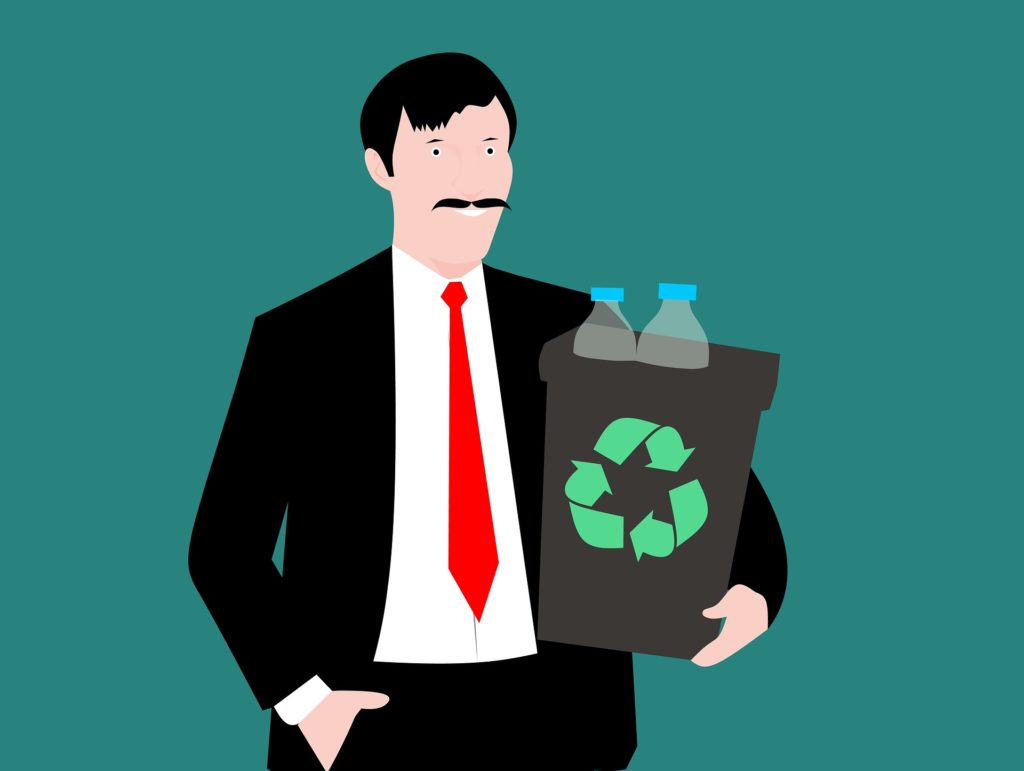
As we look to our and our children’s futures, one concern that looms over us is the damage continuing to be done to our environment, but to the most part our societies are united in wanting to fix the world we live in. As a result we are encouraged and motivated to engage in Pro-Environmental Behaviours (PEB) in every aspect of our lives, such as by reducing waste and recycling, making environmentally friendly product choices, minimizing our carbon footprints and making sustainable lifestyle choices when it comes to our diets. Anyone who has paid the slightest bit of attention will know quite clearly what they need to do.
However, too often, we don’t do these things. Why not?
This is why I think the question of how we can protect our environment is best dealt with by a psychological answer, but this answer will no doubt be a complicated one with many aspects to it. Fortunately this is something psychology has begun conducting a great deal of research into revealing this answer one layer at a time. These layers include understanding the role of personality differences (e.g. why do some people engage more in PEB than others?), how people understand their own roles in helping the planet, and the process by which people make important decisions around PEB.
Recycling and Mate Choice

My particular interest is how social influence can affect people’s motivations to engage in PEB’s. This is because my background is in evolutionary approaches to psychology, in particular I am interested in why people incur the costs to help others (e.g. altruistic behaviour) and I’ve explored how being altruistic can be valuable in mate choice, as it is a desirable trait in long term partners for men and women. This is because it acts as a reliable signal of that partner’s abilities and characteristics that will make them bot a good partner and parent – vital traits in humans who benefit from having investment from both parents in raising any children.
As part of this research, I am interested in how different forms of prosocial behaviour play a role in mate choice (e.g. kindness, charity, heroism, trustworthiness), and PEB is one particular application of prosocial behaviour that I wanted to explore. This is because PEB’s are costly to perform (e.g. sorting out recycling, purchasing organic produce) but they do benefit others. That’s what led to me and my colleague Manpal Bhogal to conduct research recently published in Personality and Individual Differences that explore whether people who display PEB are more desirable partners (experiment 1) and if people report engaging in more PEB in the presence of potential partners (experiment 2). Both of the experiments we conducted took place online, and were mainly psychology students and other members of the public.
For experiment 1, participants were presented with a series of descriptions of members of the opposite sex that varied in how pro-environmental they were, with either them being described as high (e.g. “Person A always sorts through their household/everyday waste so that it can be recycled and re-used (metal, plastic, cardboard etc). Even though it is time consuming, they believe it is a useful thing to do”) or low (e.g. “When buying drinks, Person B always buys disposable coffee cups, and bottles of water which they do not re-use. (Low pro-environmental behaviour.”)
They then rated each on how desirable they would be for either a short-term relationship (e.g. brief affair, one-night stand) or long-term relationship (e.g. a committed long-term romantic relationship). We found that both men and women found individuals high in pro-environmentalism to be more desirable overall, and this effect was mainly for long-term relationships (i.e. individuals high in pro-environmentalism were highly desired for long-term relationships
In experiment 2, participants were presented with hypothetical scenarios where they were asked by a researcher about their pro-environmental behaviour (e.g. how much they recycle, use reusable coffee cups/water bottles, purchase environmentally-friendly products). Each time participants were shown a picture of the hypothetical ‘researcher’ which was either a highly attractive member of the opposite sex or the same sex (we used images that had previously been rated for physical attractiveness).
We found that both men and women reported engaging in more pro-environmental behaviour when the researcher ‘asking’ them was an attractive member of the opposite sex than when asked by an attractive member of the same sex.
These results show that as with other forms of prosocial behaviours such as altruism and heroism, pro-environmentalism can act as a signal to others of important characteristics that an environmentally-friendly individual possesses. These characteristics are viewed in a positive light, and in particular here can signal characteristics (such as kindness, potential to be a good partner and parent) we find important in relationships, in particular more longer term, committed ones.
As such, it can help guide how we think about how to promote PEB, by not just highlighting its value directly from helping the planet but also indirectly by how it can enhance our reputation. This is important I think, because the direct benefits of pro-environmentalism are difficult to observe, quantify or comprehend. For example, how can you see an individual decision to reduce one’s carbon footprint by changes such as using energy-efficient lightbulbs in global figures around climate change? The answer is you clearly cannot, which is a key reason why we don’t engage in sustainable behaviours – there’s no direct benefit that can be observed. This is why findings such as this where we can show that there are clear and immediate indirect benefits to being green (in this case, increased desirability as a romantic partner) are helpful, as they can be used to promote and shape these positive behaviours overall.
Another key reason for this is the fact that it is costly to engage in, which seems counterintuitive but shows that an environmentally-friendly person is willing to incur the costs (in terms of time, effort and/or money) to take part in these behaviours (e.g. sorting through their rubbish for recycling, spending more money on greener products, eating a more sustainable diet). By doing so, they make honest displays of their prosocial character, and others recognise and value this. In fact there is evidence that environmentally-friendly products are often considered ugly, but that ugliness acts as a reliable signal of its green credentials and thus making it more desirable!
Finally, it’s important now to follow up this research by looking at actual PEB to see if the mating motivations we found do translate to real world behaviour. This then will highlight how important psychological research and interventions can be in shaping positive behaviours in the world around us, and how psychology in general can make a difference.

Dr Daniel Farrelly
Daniel is a Principal lecturer in psychology. He obtained his BSc (hons) in psychology from Liverpool University in 1999, followed by an MSc in evolutionary psychology from Liverpool University in 2000. He gained his PhD in Psychology, studying the evolution of human cooperation, from Newcastle University in 2005.
Leave a Reply